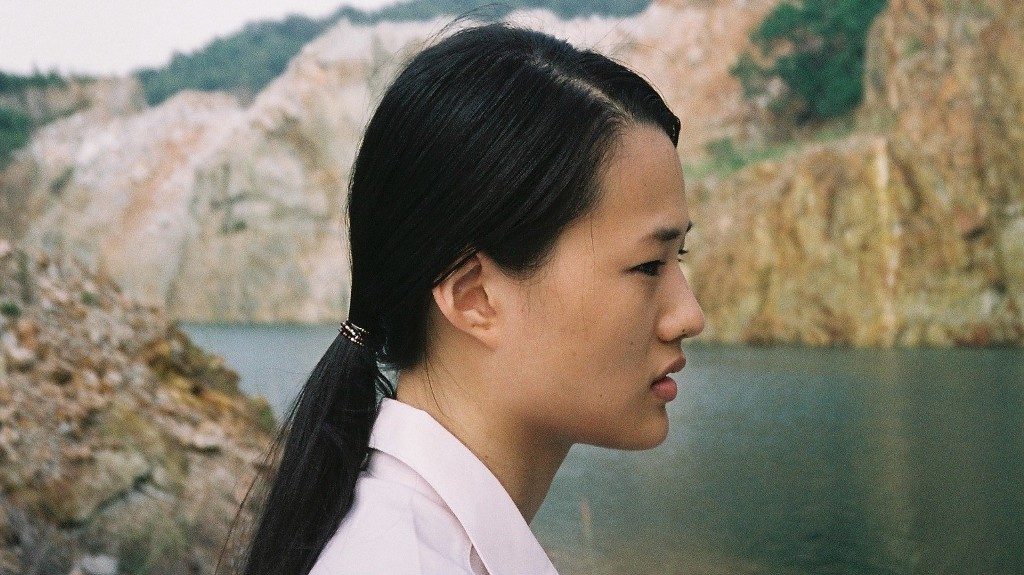Born in Thailand, Anocha Suwichakornpong graduated with a Master of Fine Arts in film from Columbia University in New York. Her thesis film, “Graceland,” was screened at the Cannes Film Festival. She directed “Lunch,” a part of “Breakfast, Lunch, Dinner,” a feature co-directed by Kaz Cai and Wang Jing. Her first feature, “Mundane History,” won the VPRO Tiger award at the International Film Festival Rotterdam in 2010.
“By the Time It Gets Dark” will premiere at the 2016 BFI London Film Festival on October 14.
W&H: Describe the film for us in your own words.
AS: Second-hand memories, a film, and a blue mushroom. If that sounds abstract, then there’s a better way to find out what it’s about: experience it.
W&H: What drew you to this story?
AS: It’s a multiple-narrative film, but one of the main narratives centers around a real-life incident — a massacre that took place in Thailand 40 years ago when the police and the right-wing paramilitaries attacked and [orchestrated a] crackdown on the student protesters, which was later known as the Thammasat University Massacre. A filmmaker wants to make a film based on the life of a former activist who was active during that period. So, you could say the Massacre itself was the impetus for the story.
W&H: What do you want people to think about when they are leaving the theater?
AS: I don’t have a “message” to impart on the audience. But if someone leaves the theater reflecting on their life and questioning their relation to society and history, I’d be quite happy about it.
W&H: What was the biggest challenge in making the film?
AS: Financing, unfortunately. It was rather difficult to convince people, even film funds, to financially support the film, due to the nature of the project. The film has multiple narratives, with multiple characters and different timelines, which is to say it’s not a very easy film to watch. In addition, since I took so long to complete the film — I was filming periodically over two years — it was becoming increasingly difficult to keep some cast and crew members.
W&H: How did you get your film funded? Share some insights into how you got the film made.
AS: I took three years to finish the screenplay, during which time I was also raising funds for the project. But it was not until I had some footage — filming itself took two years — to show to people that I managed to secure the biggest chunk of the funding. About half of the funding came from film funds. Another 30 percent from sponsorship, and the remaining 20 percent from private investors.
W&H: What does it mean for you to have your film play at LFF?
AS: It feels great! I used to live in London and I have very fond memories of going to see films at LFF. In fact, LFF may have been the first film festival I ever went to, now that I think about it.
To come back to London with a film to present is a marvelous feeling. And London was the place where I discovered World Cinema, where my love of cinema grew. The city has such a thriving film culture, with many independent cinemas. And the culture of film criticism is also very strong.
W&H: What’s the best and worst advice you’ve received?
AS: The simple word, “No.” It’s not really advice, but it can be. It can be very sad when somebody says “no” to you. But then you learn how to do it yourself, or there is another way of doing it — and somebody down the line will say, “yes.”
W&H: What advice do you have for other female directors?
AS: There will always be obstacles. Don’t dwell on the problems. The best way to fight discrimination is get your work done and show them you can do it. And do it well.
W&H: Name your favorite woman-directed film and why.
AS: “Jeanne Dielman, 23 Quai du Commerce, 1080 Bruxelles” by Chantal Akerman. No explanation needed, really. If you have not seen it, please get your hands on this tour-de-force.
W&H: Have you seen opportunities for women filmmakers increase over the last year due to the increased attention paid to the issue? If someone asked you what you thought needed to be done to get women more opportunities to direct, what would be your answer?
AS: Yes, there has been an increase in attention paid to the issue, but I do think there are still not enough actively working women directors. Maybe we need to have more women as studio execs, or the decision-makers in the film funds, etc. so that the projects that are [by and/or about women] have more chances or being picked up and get made.







